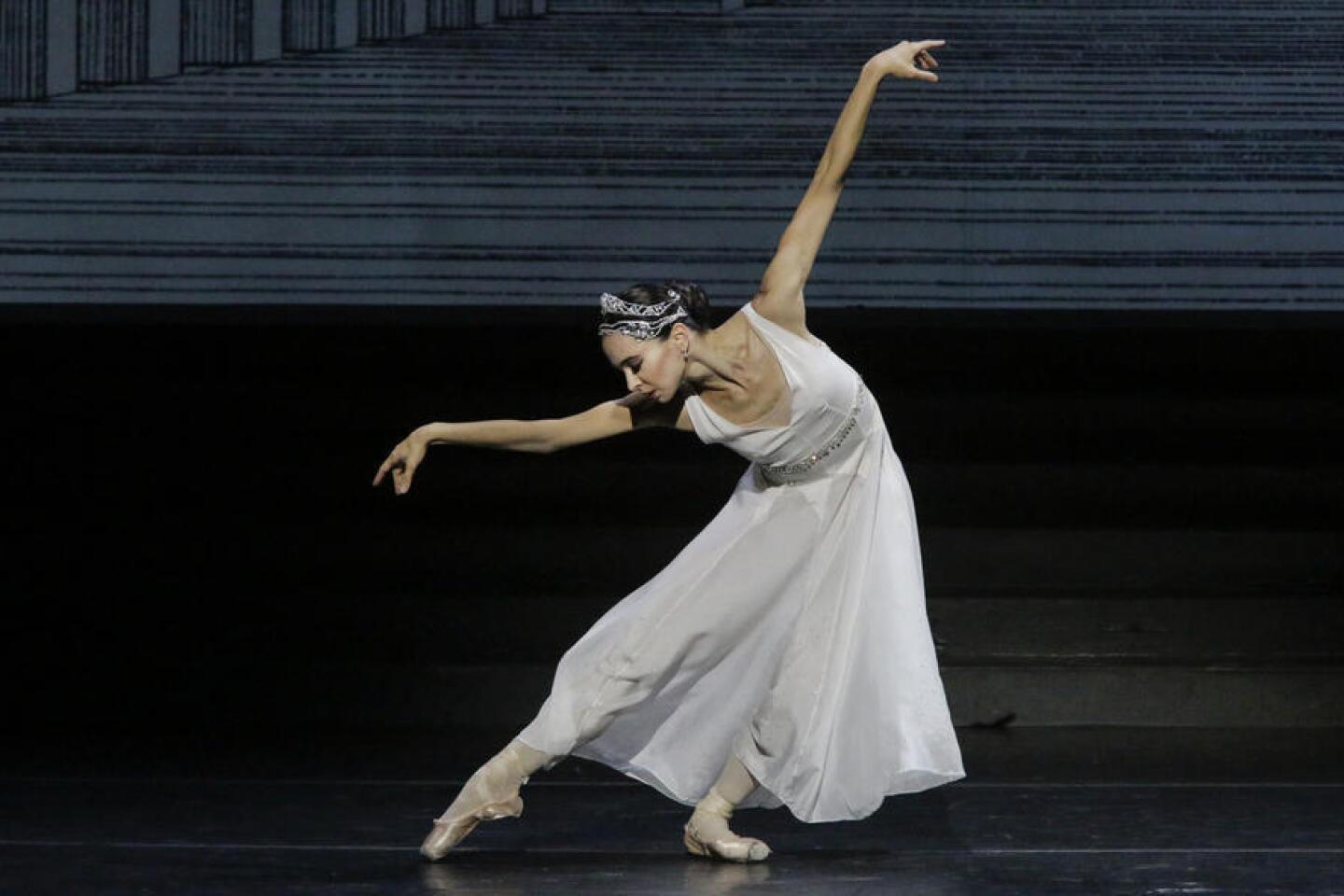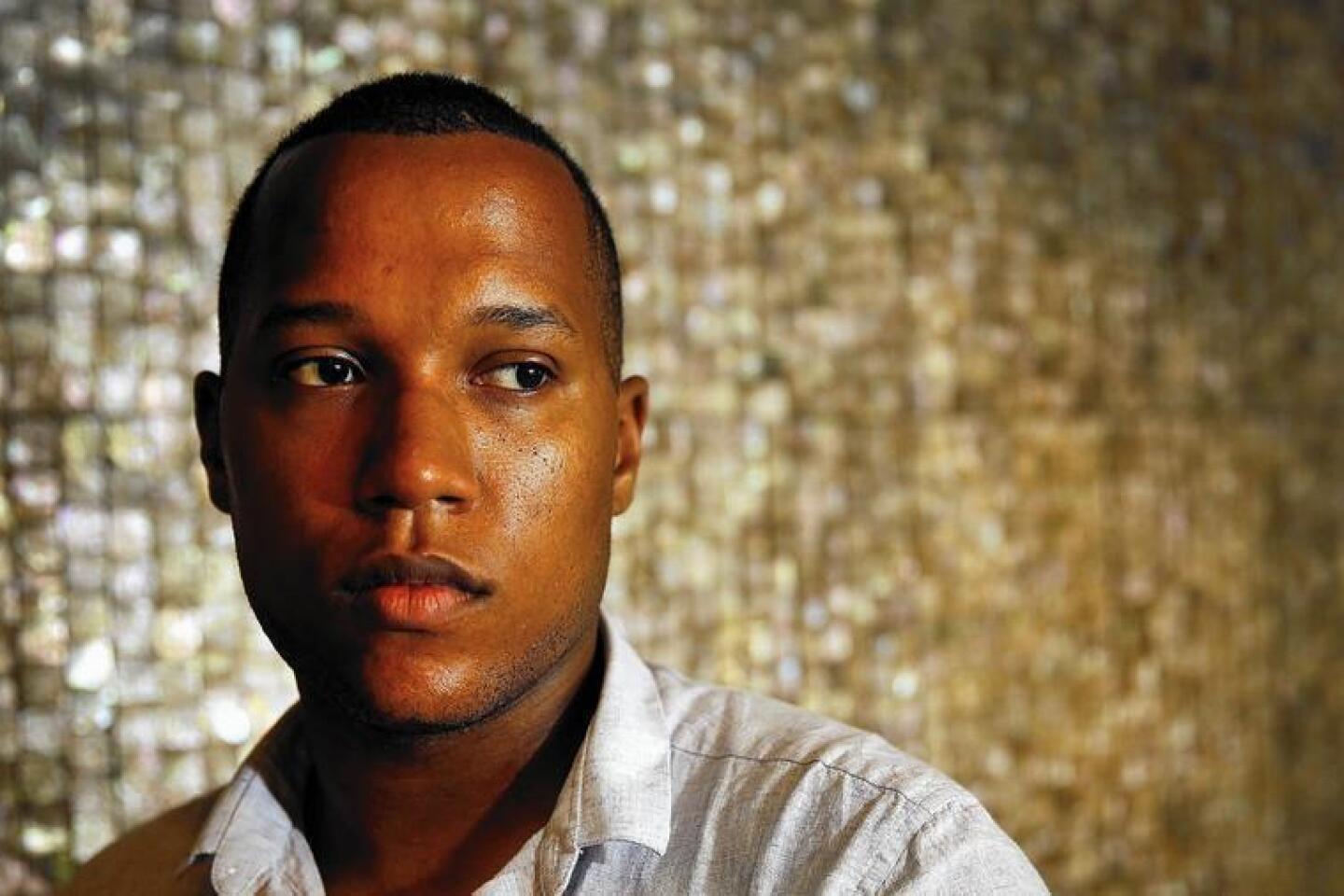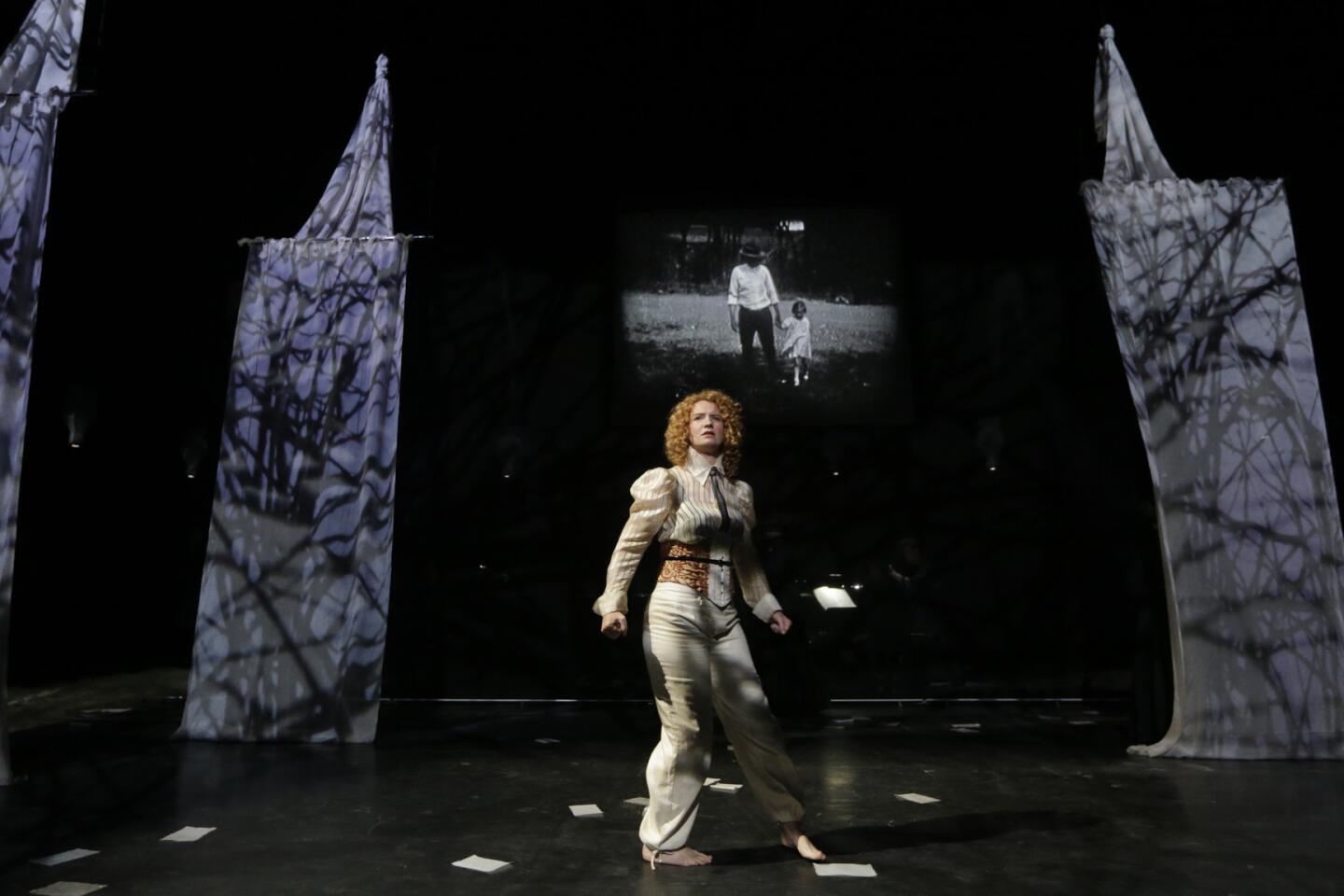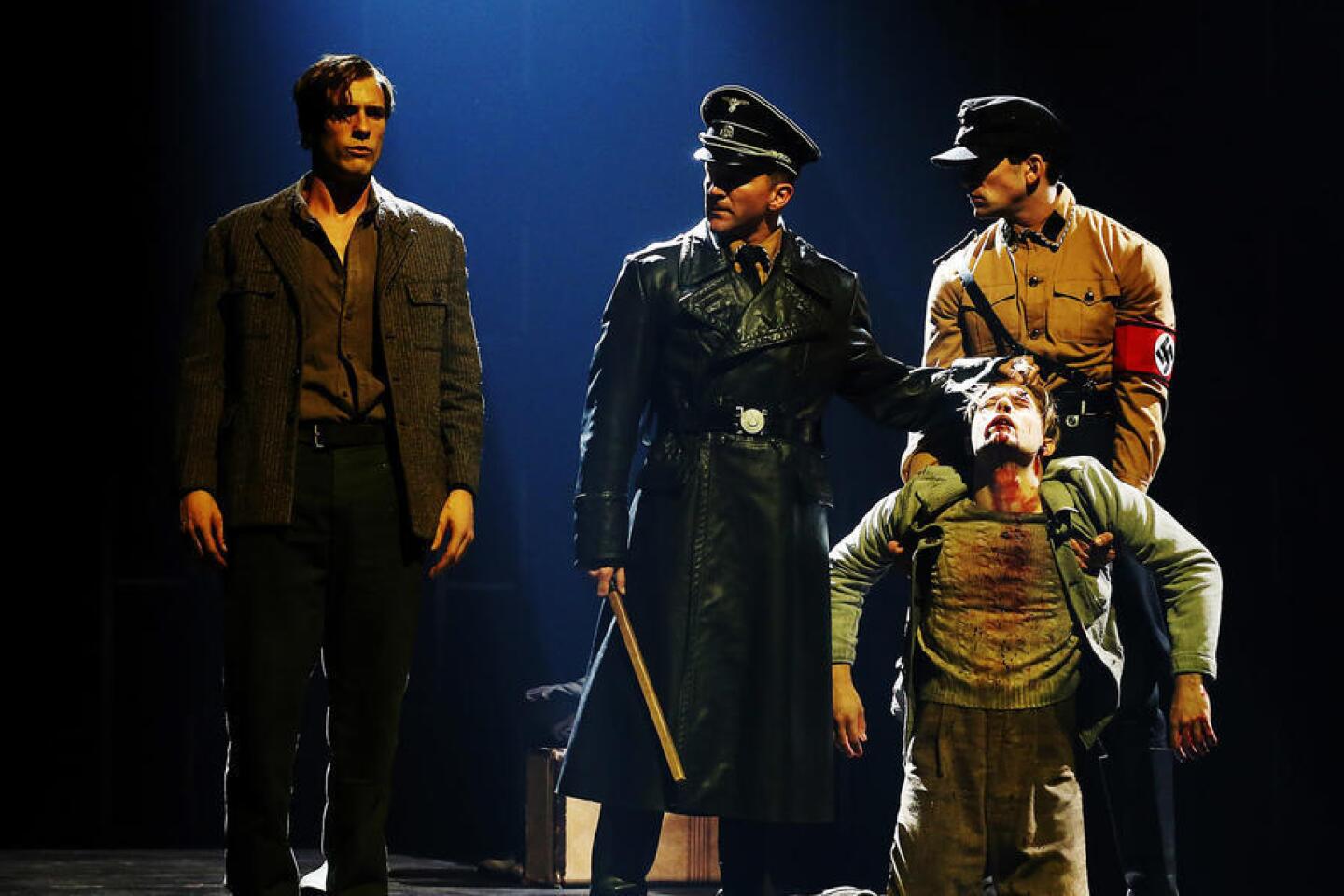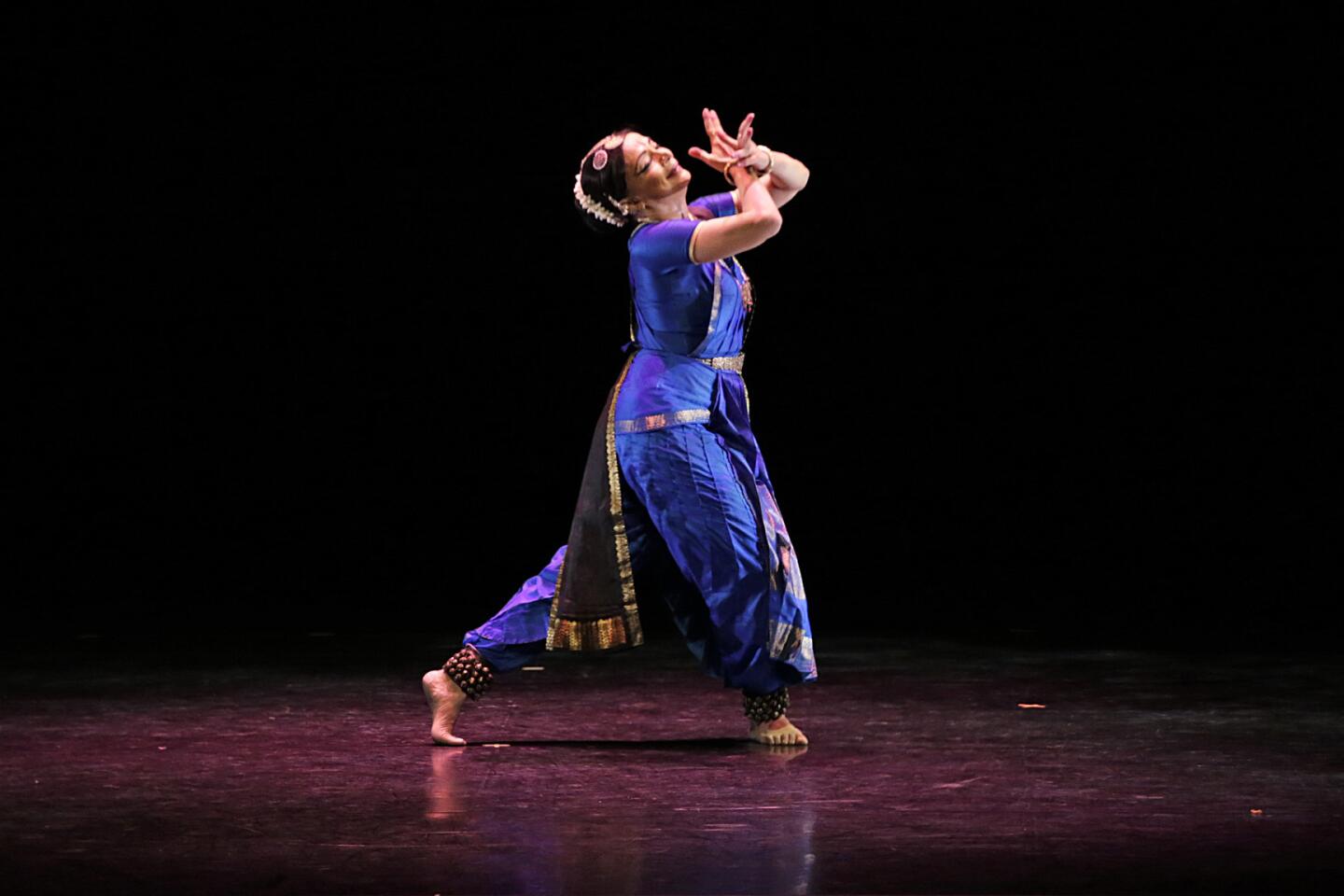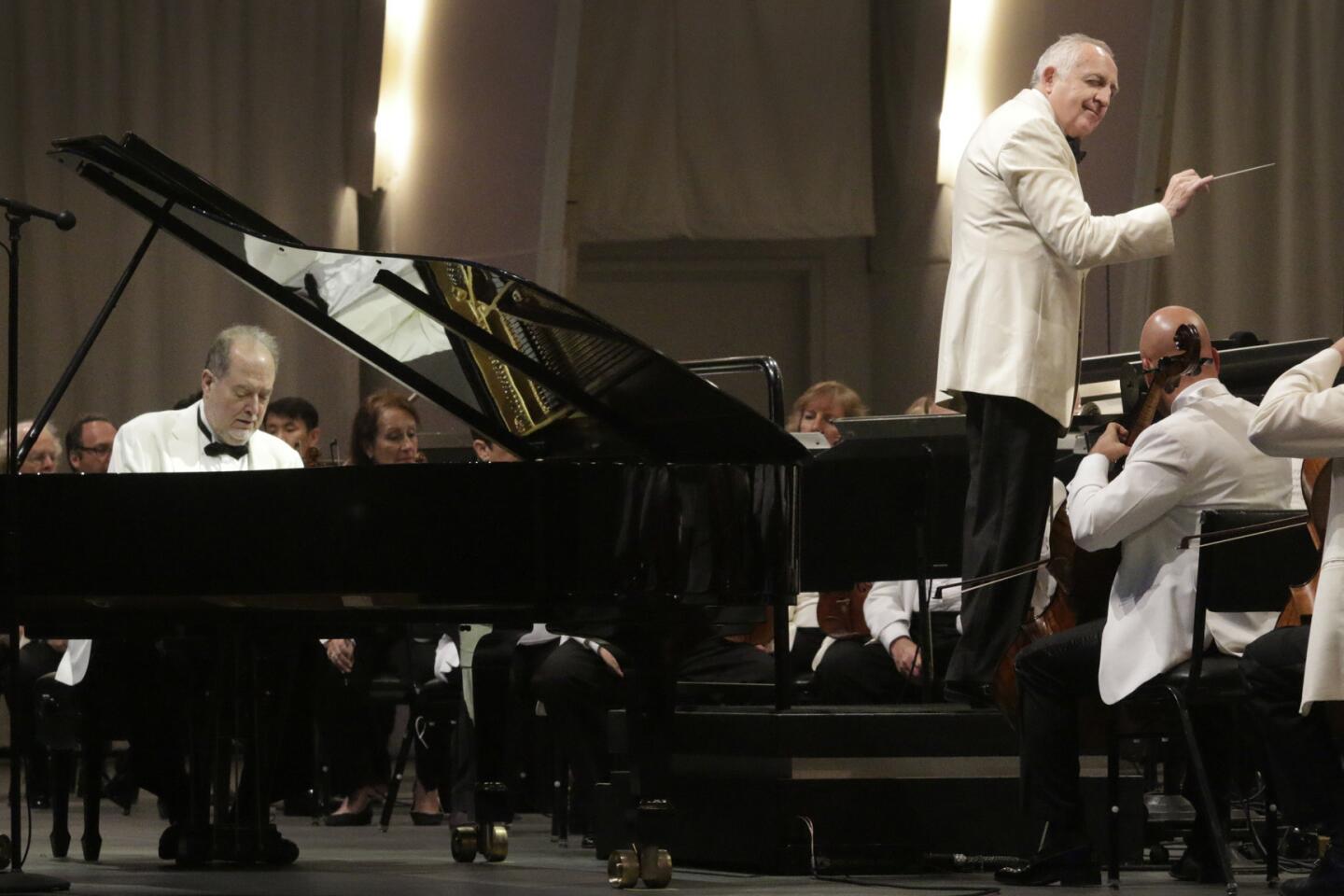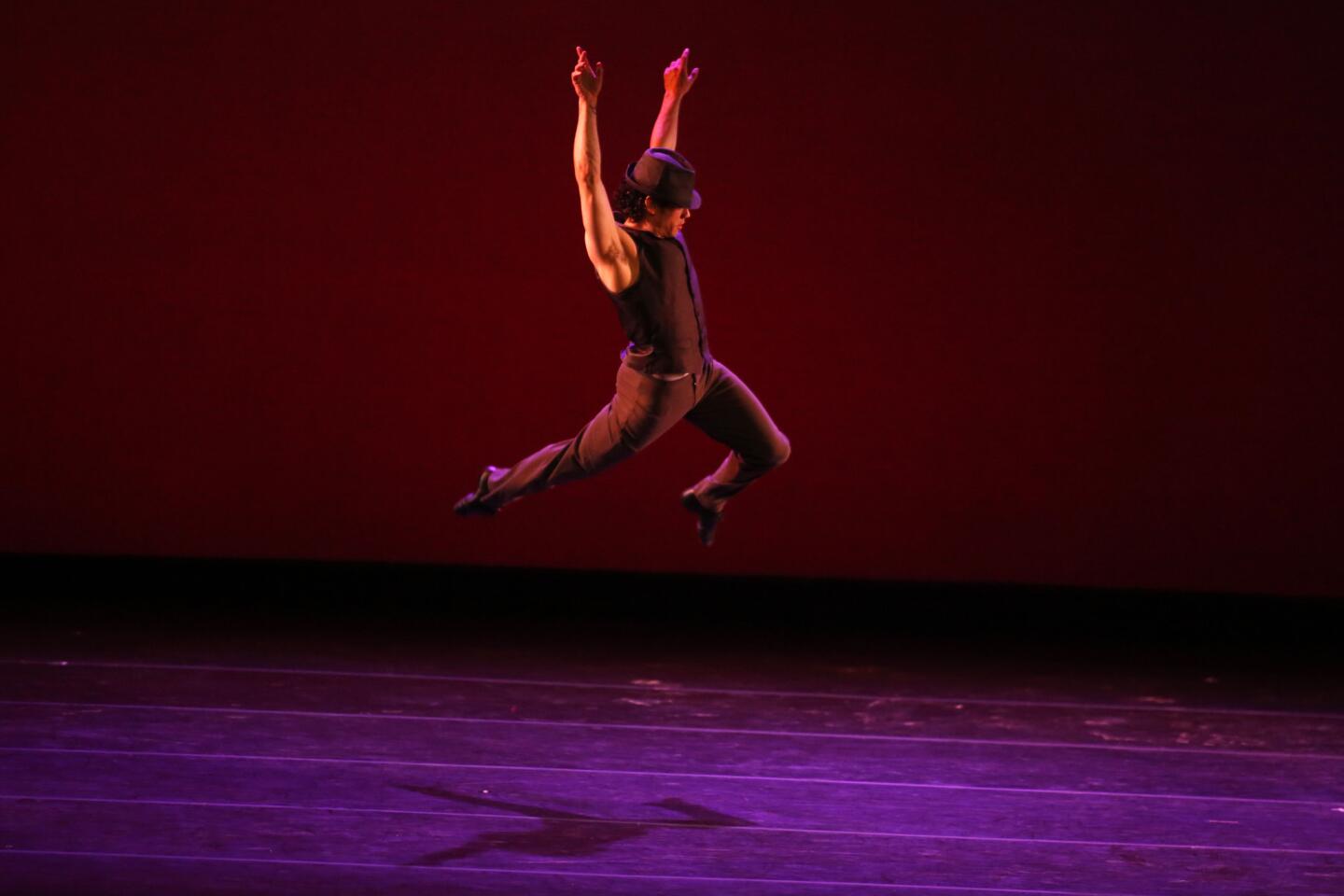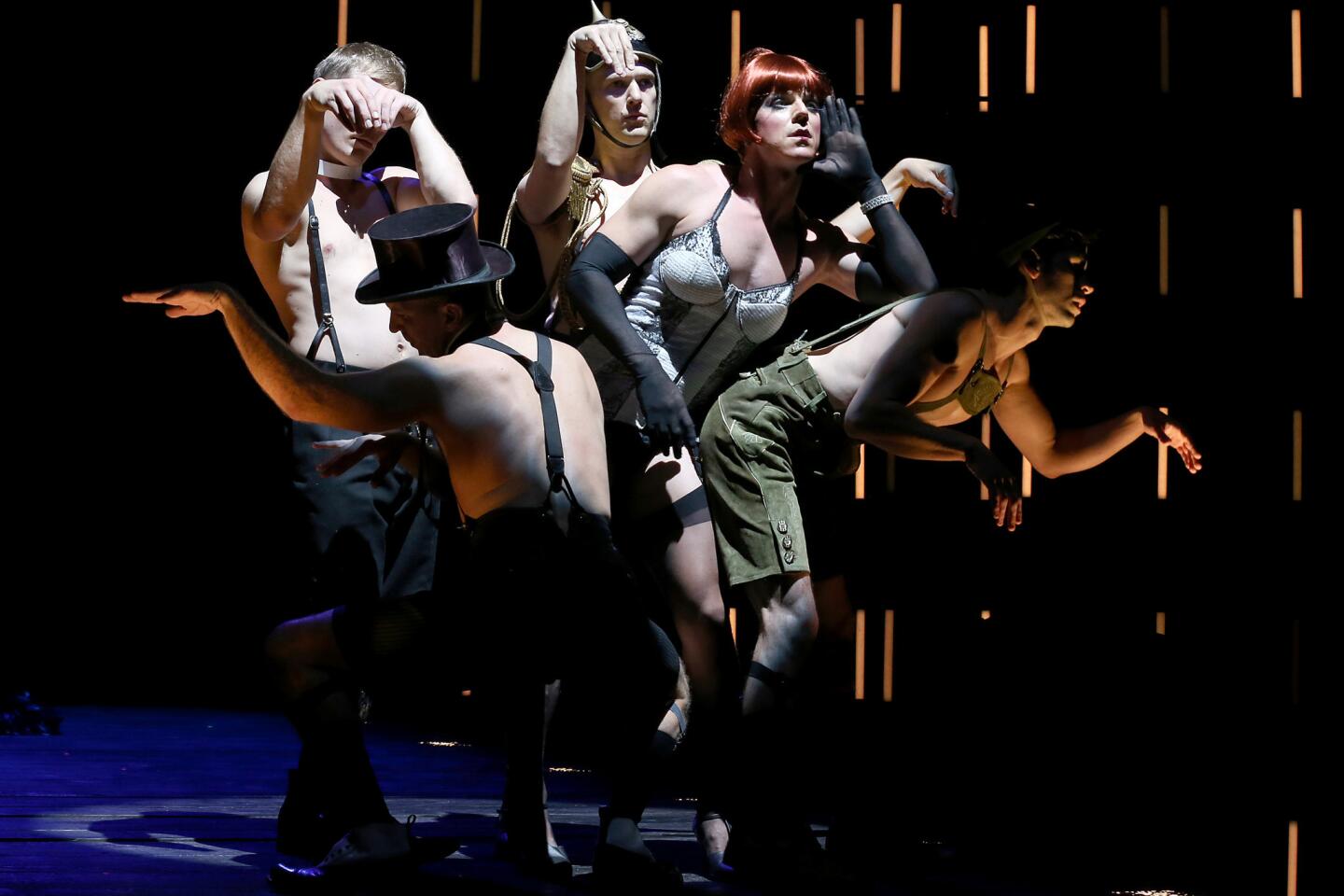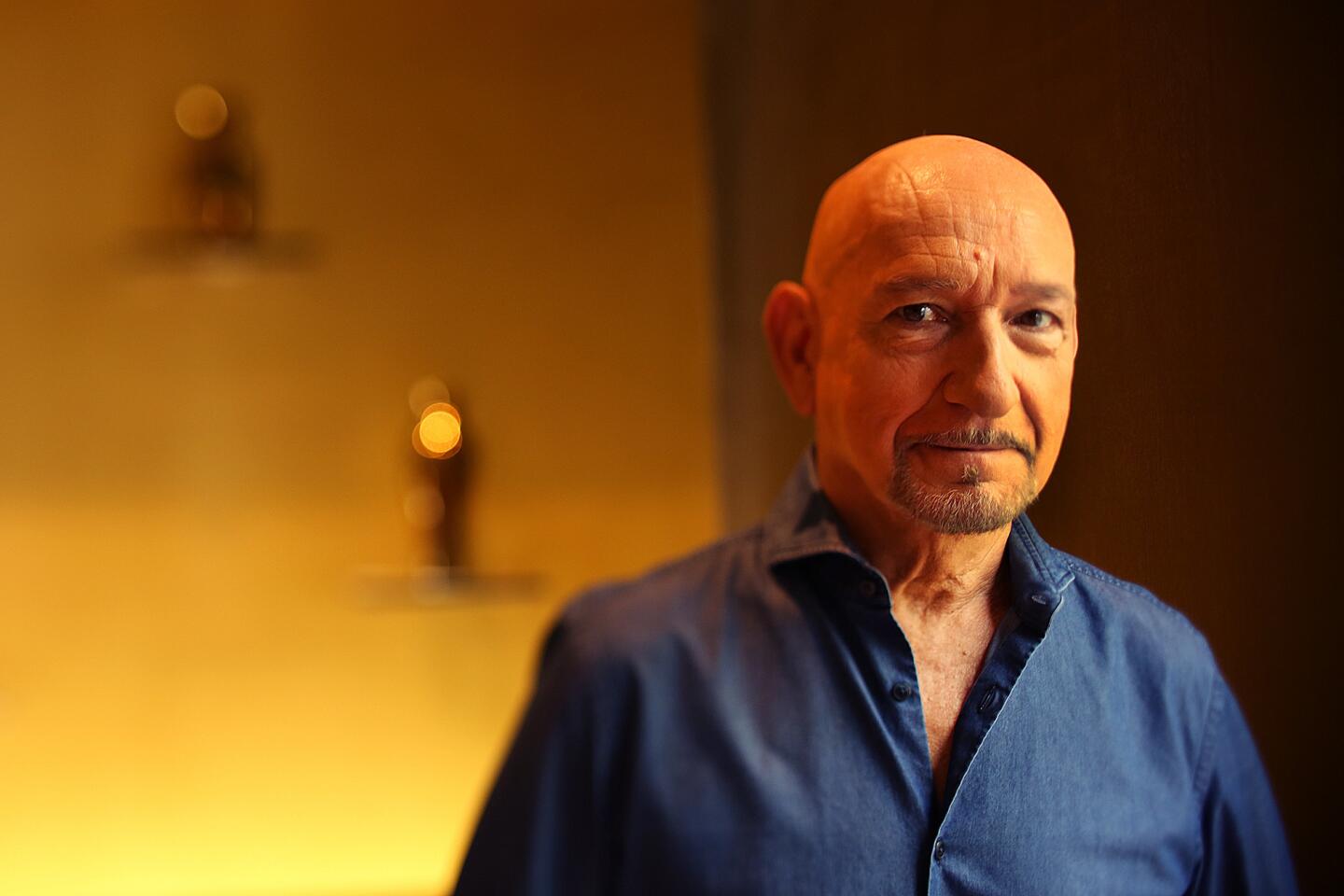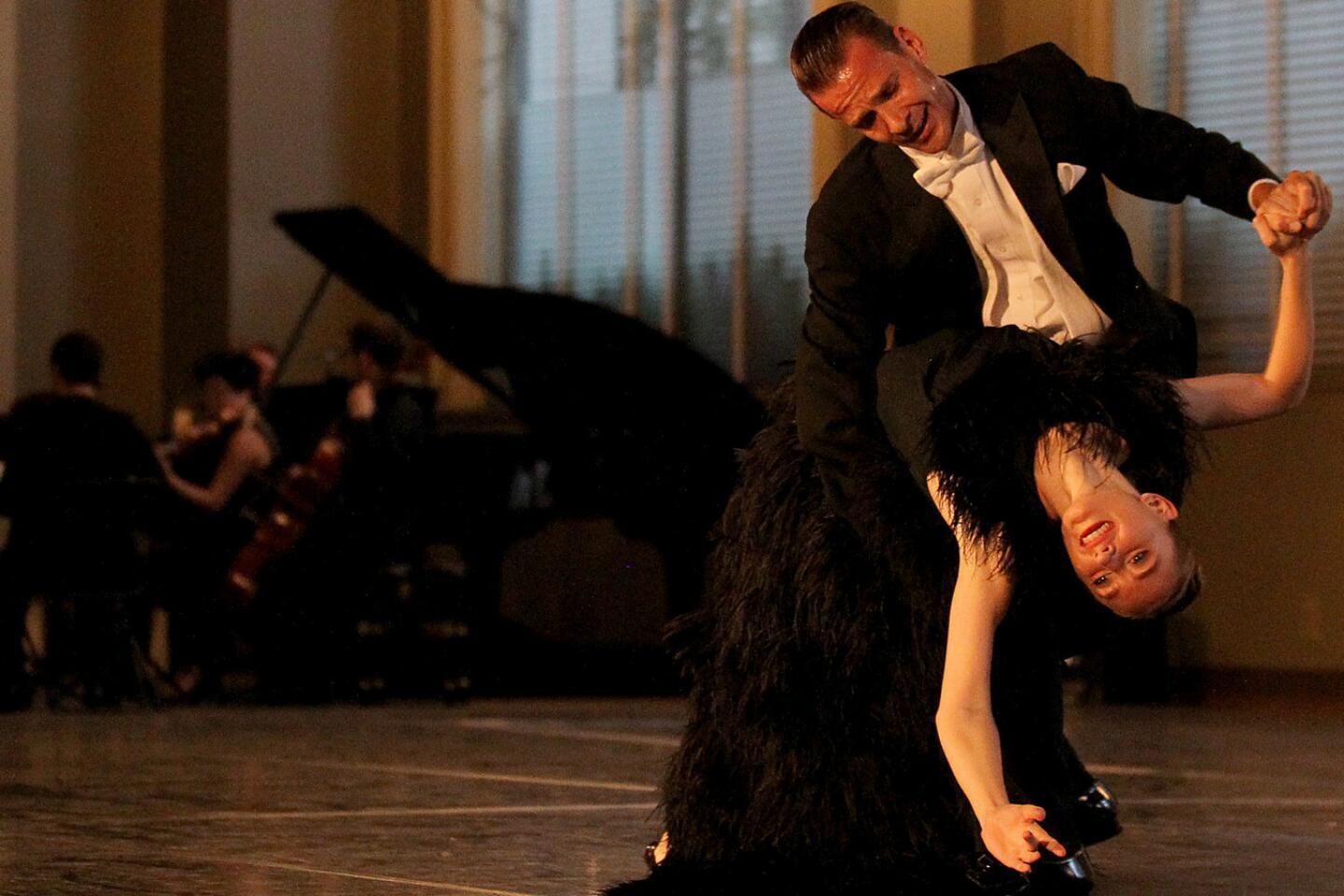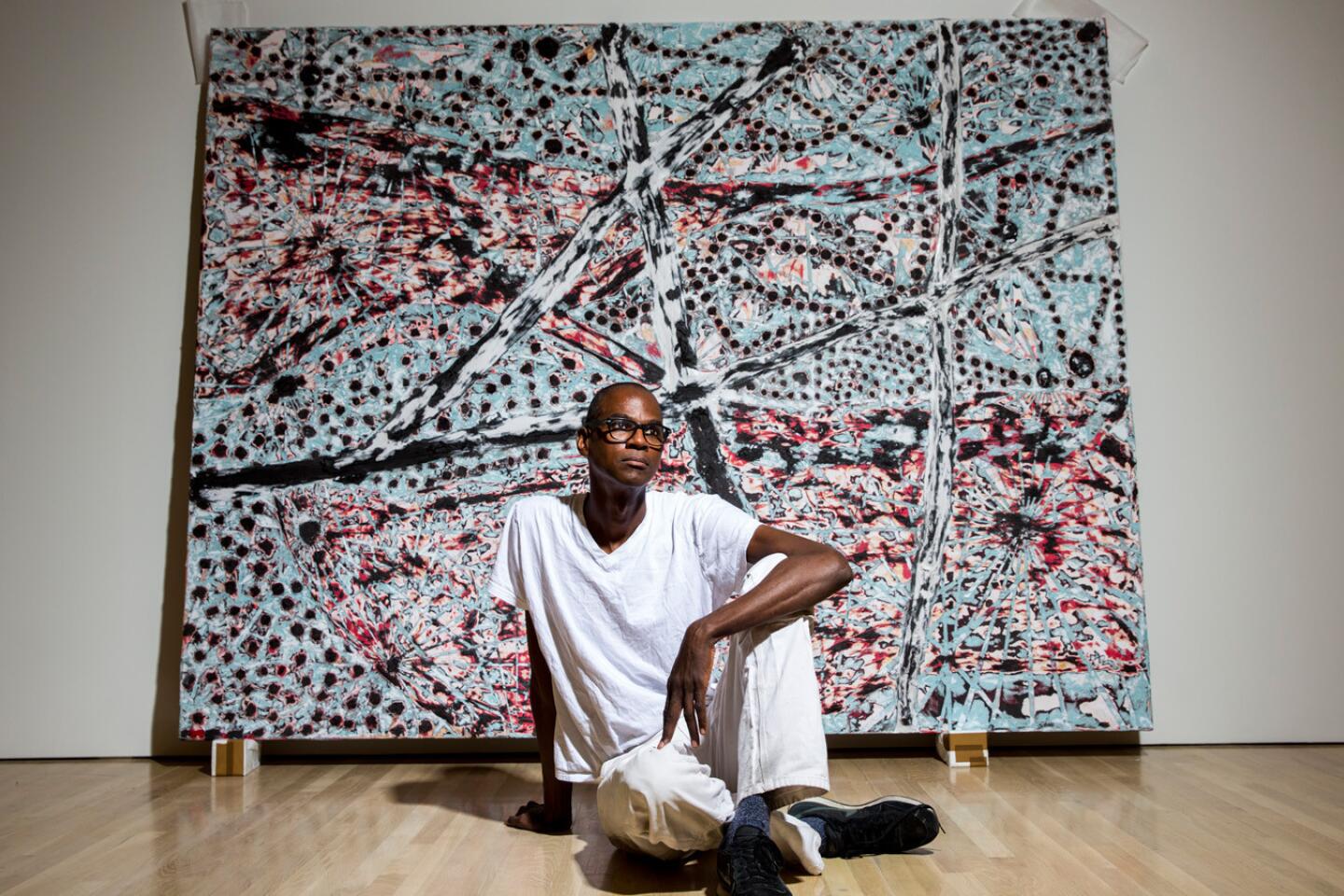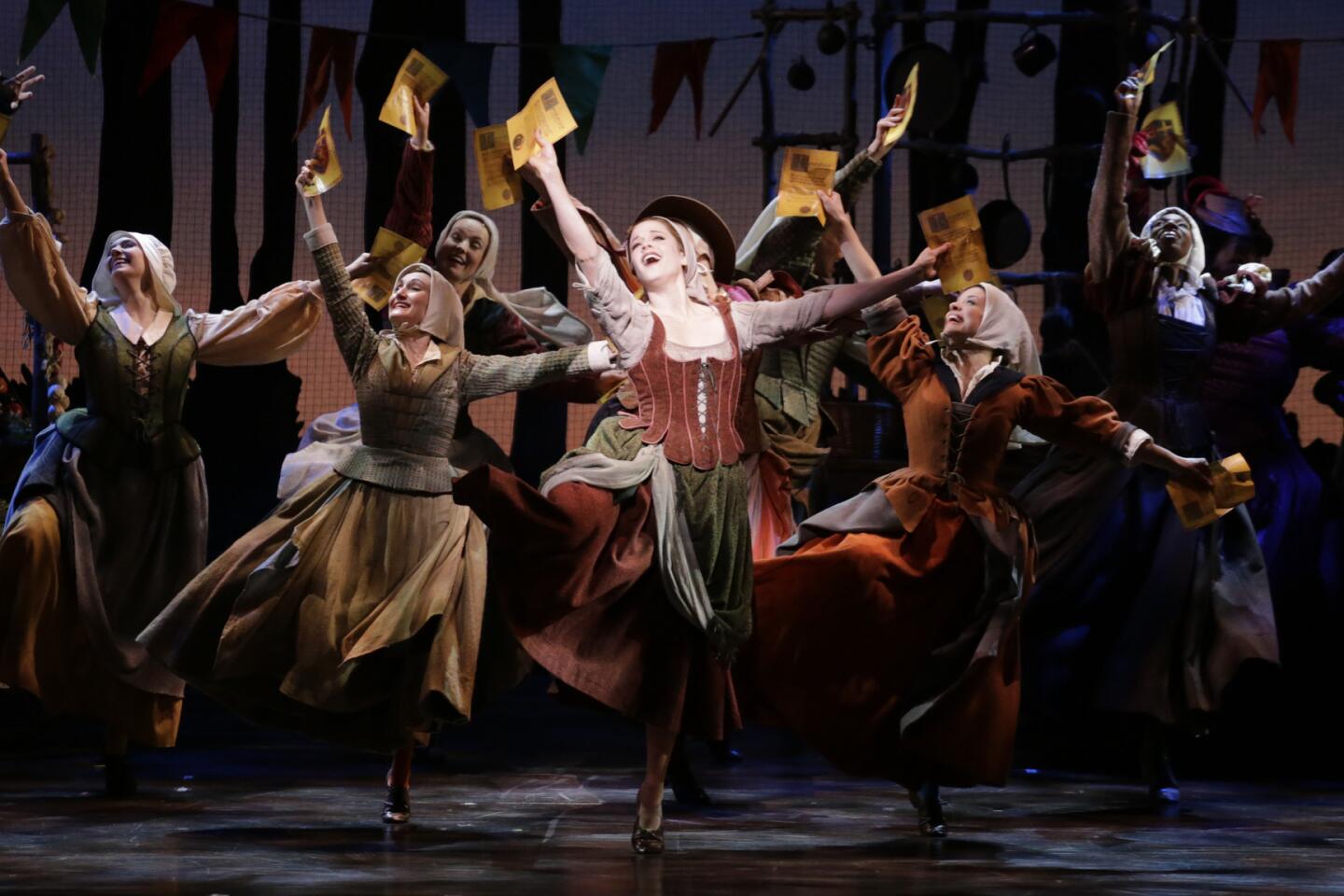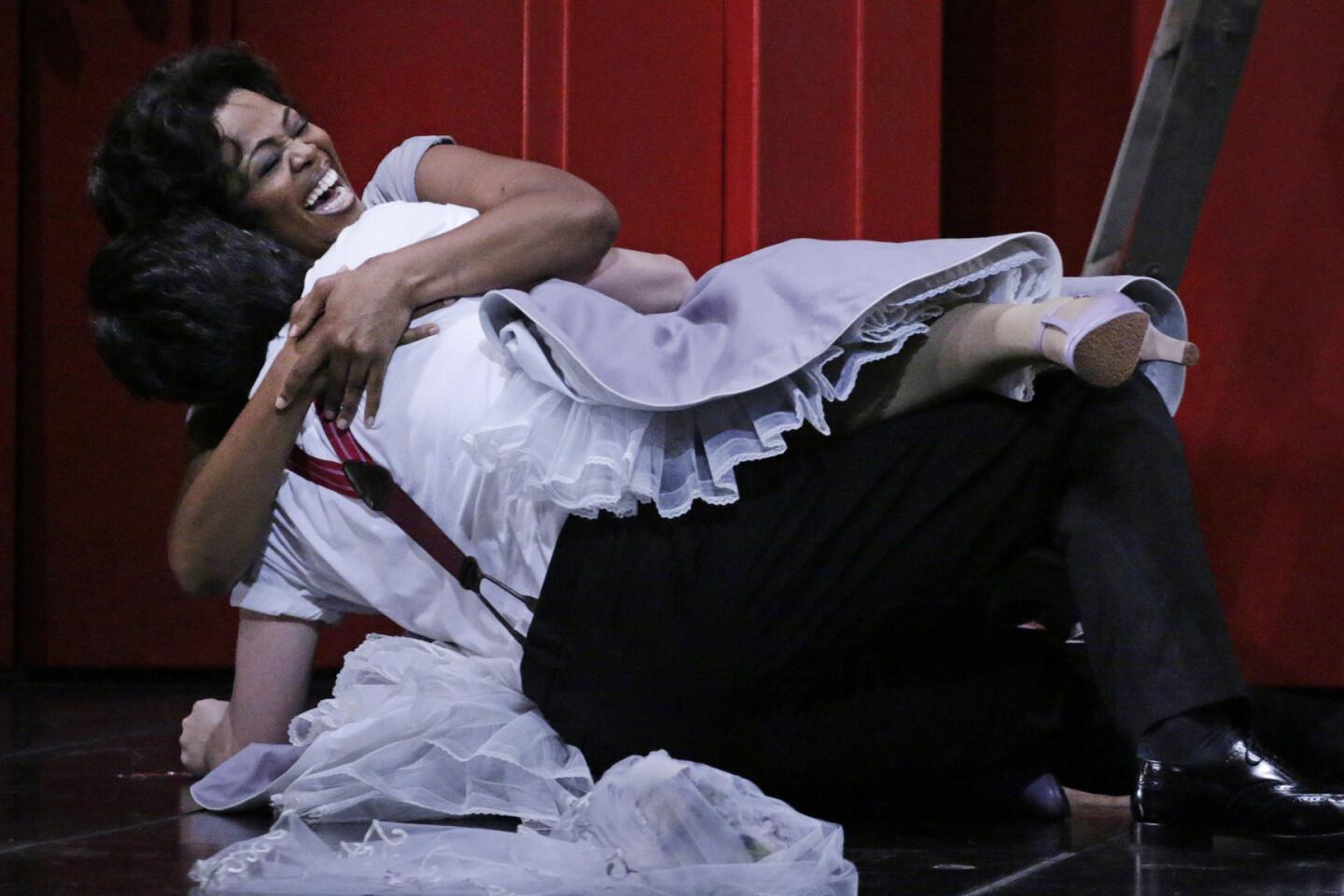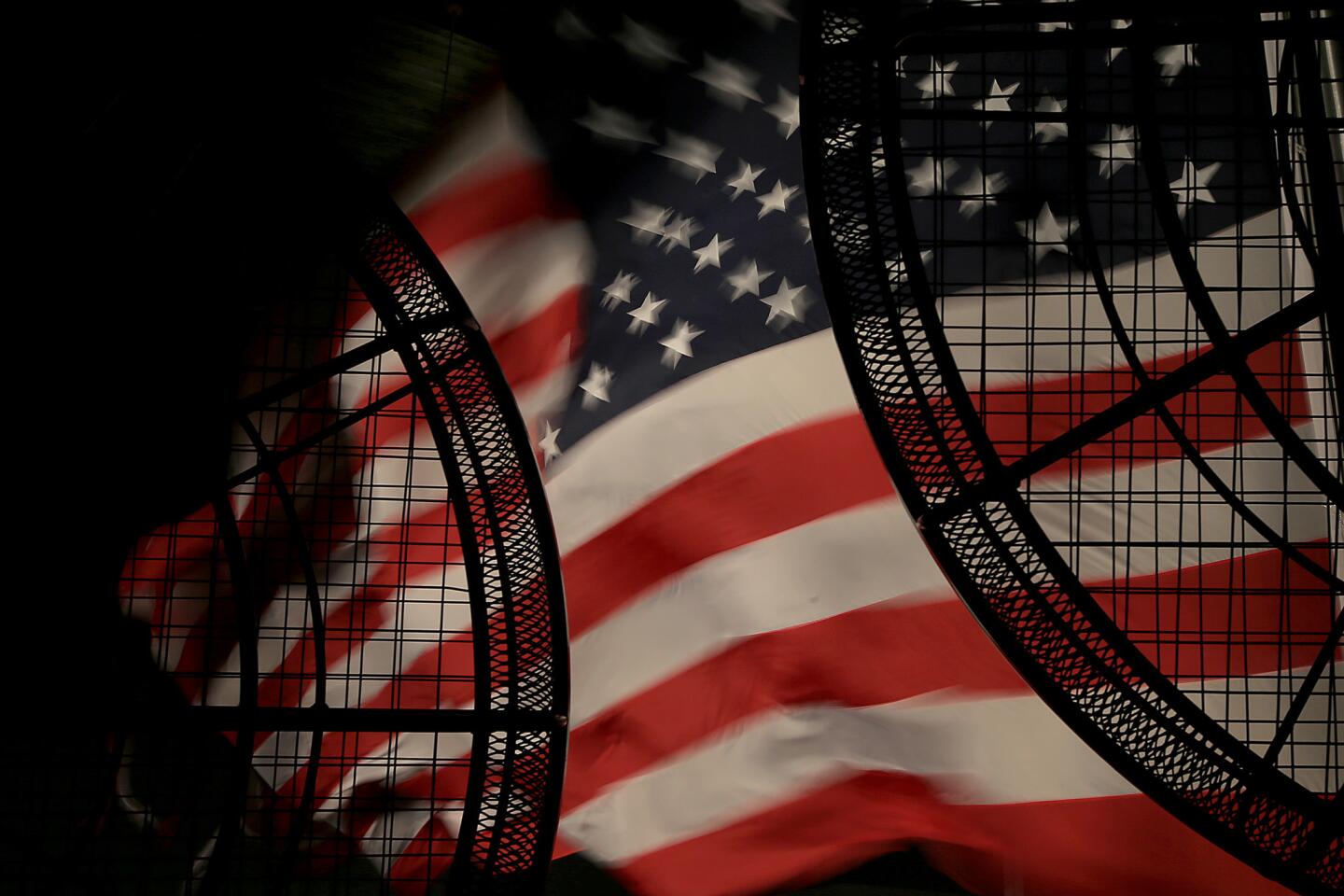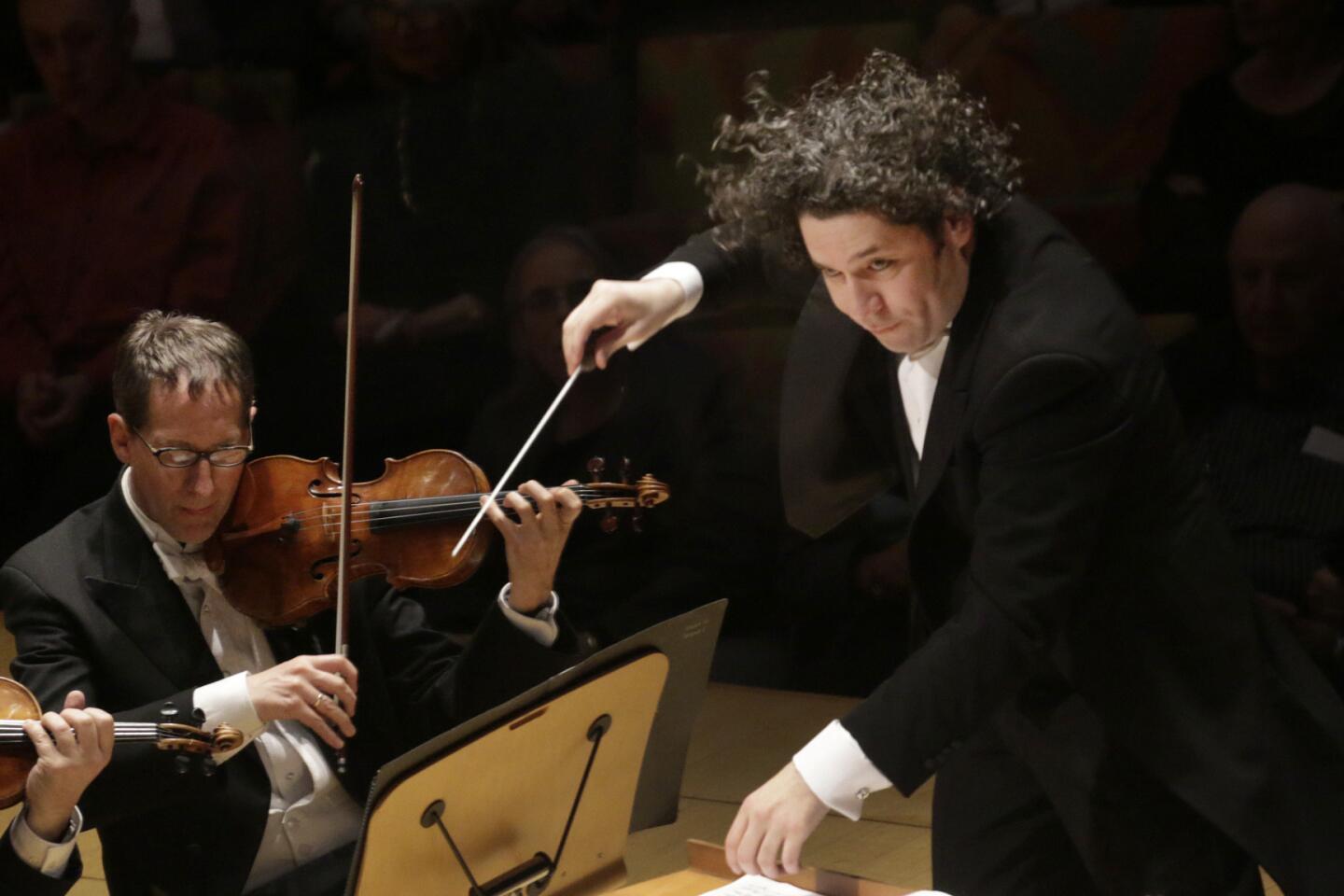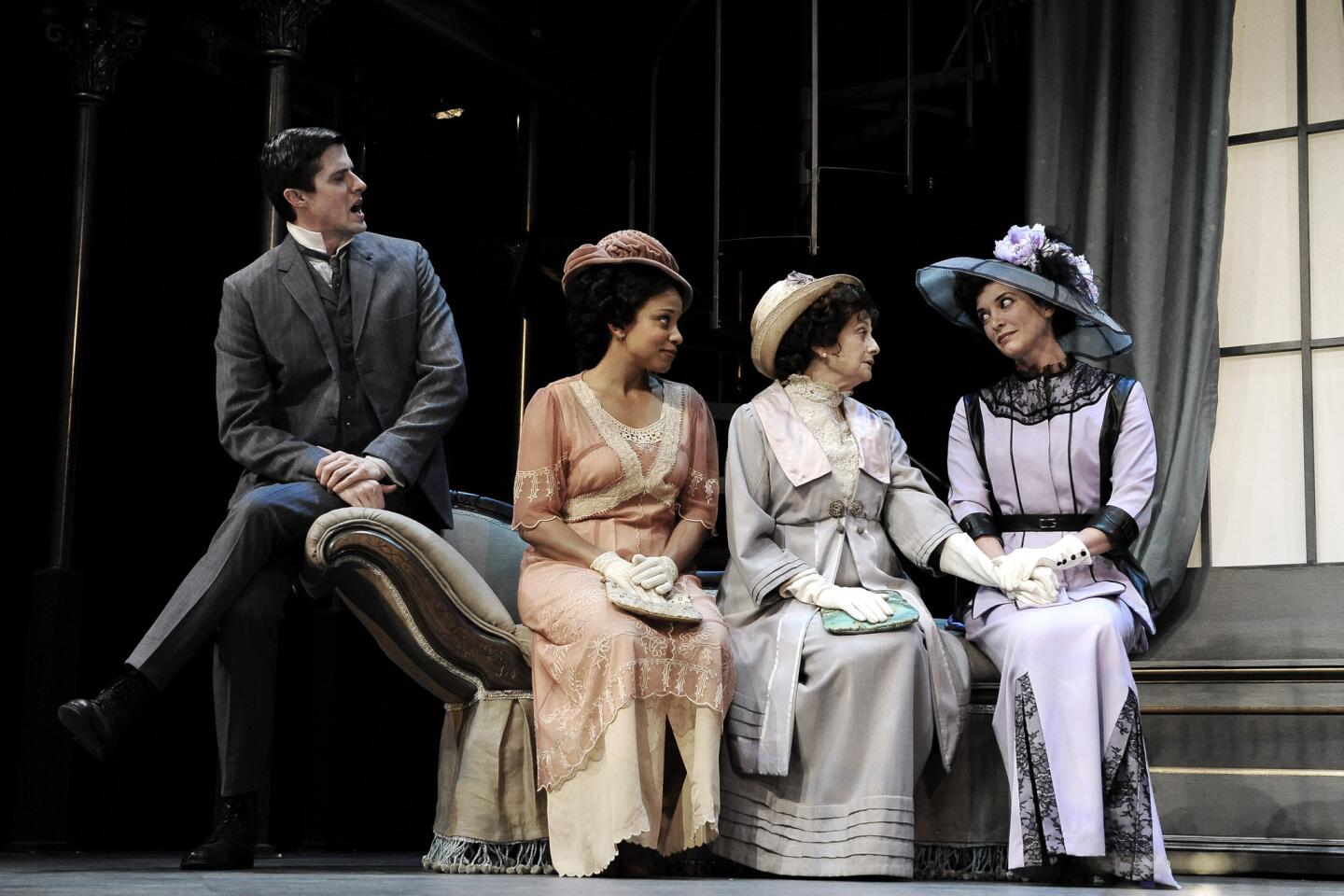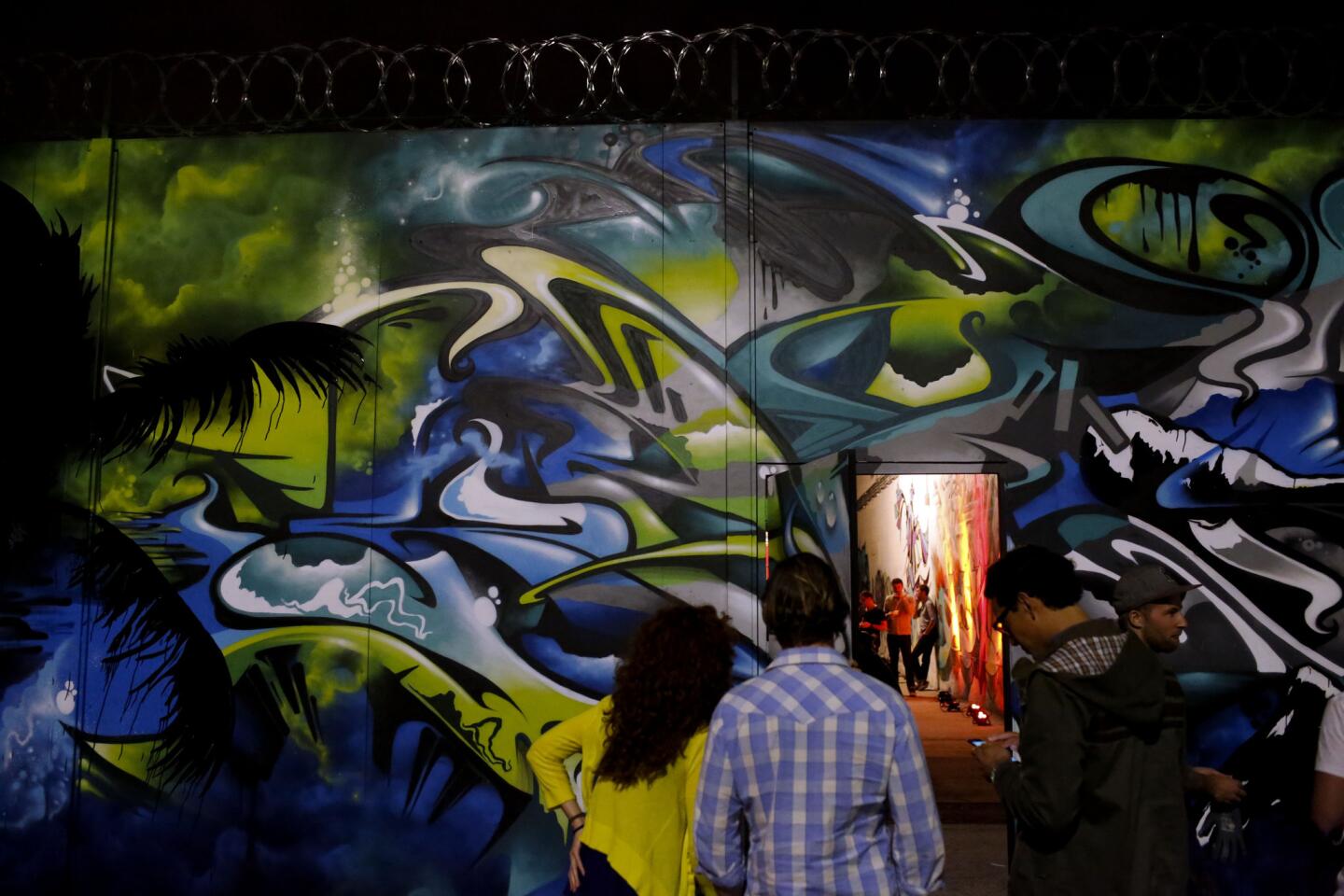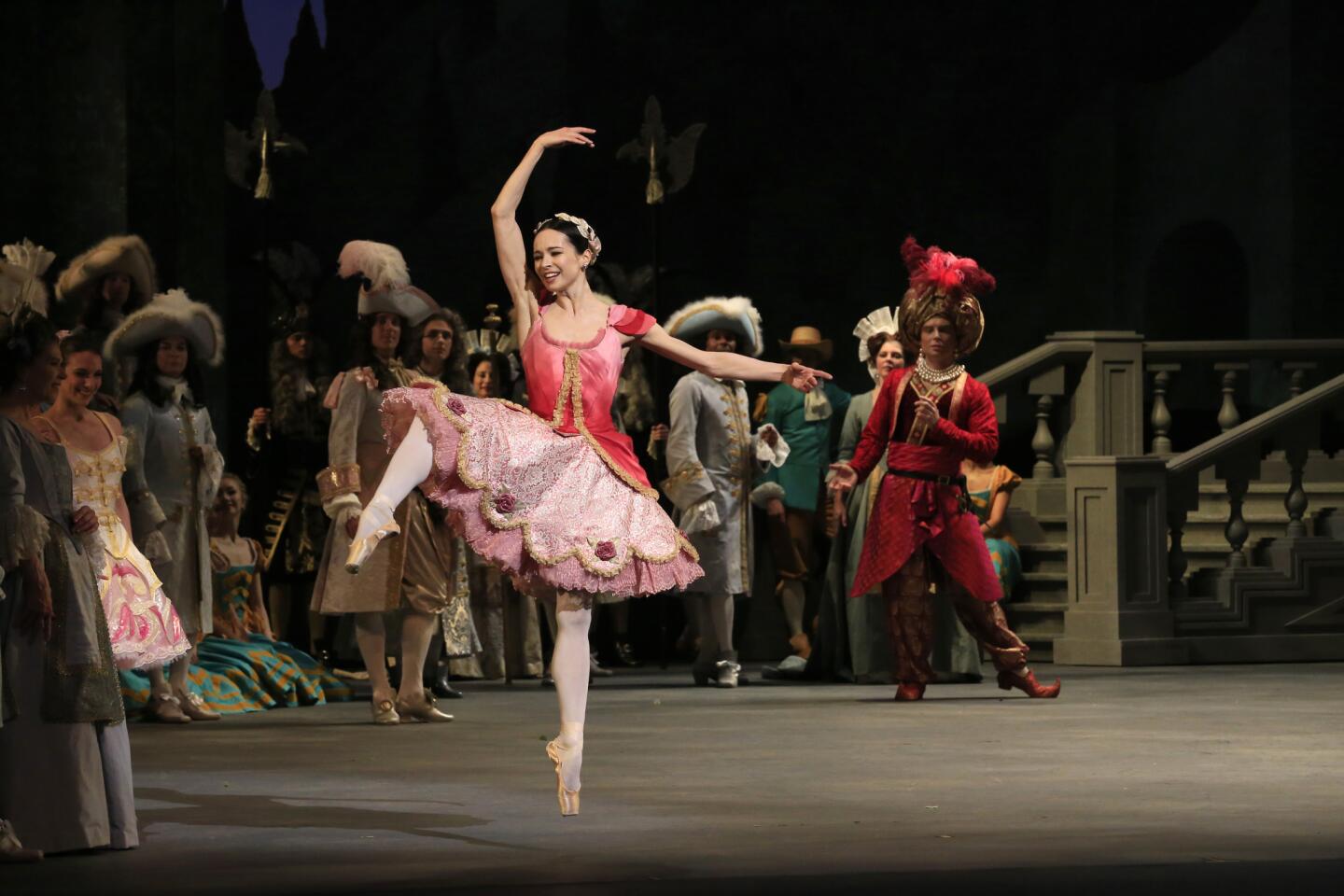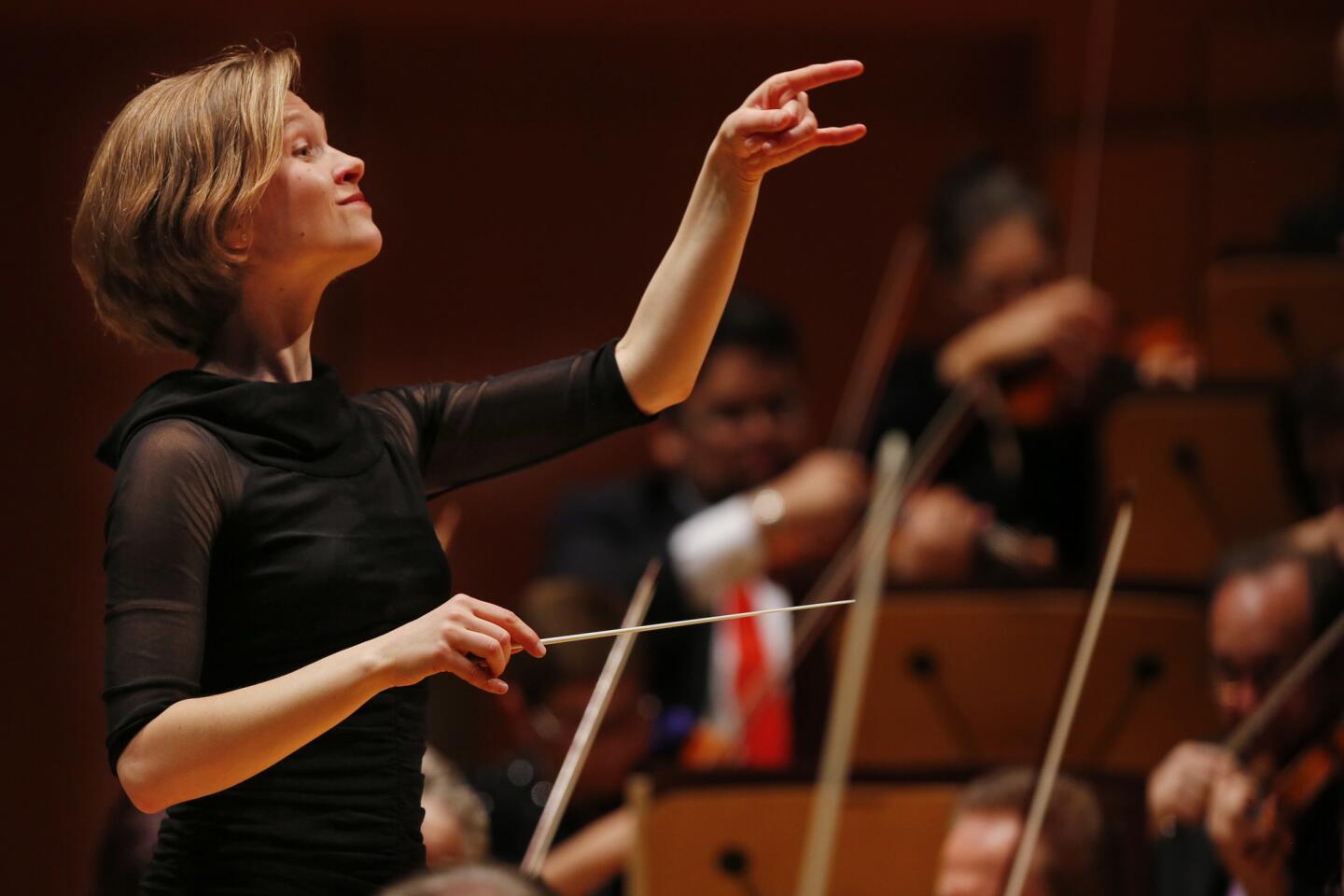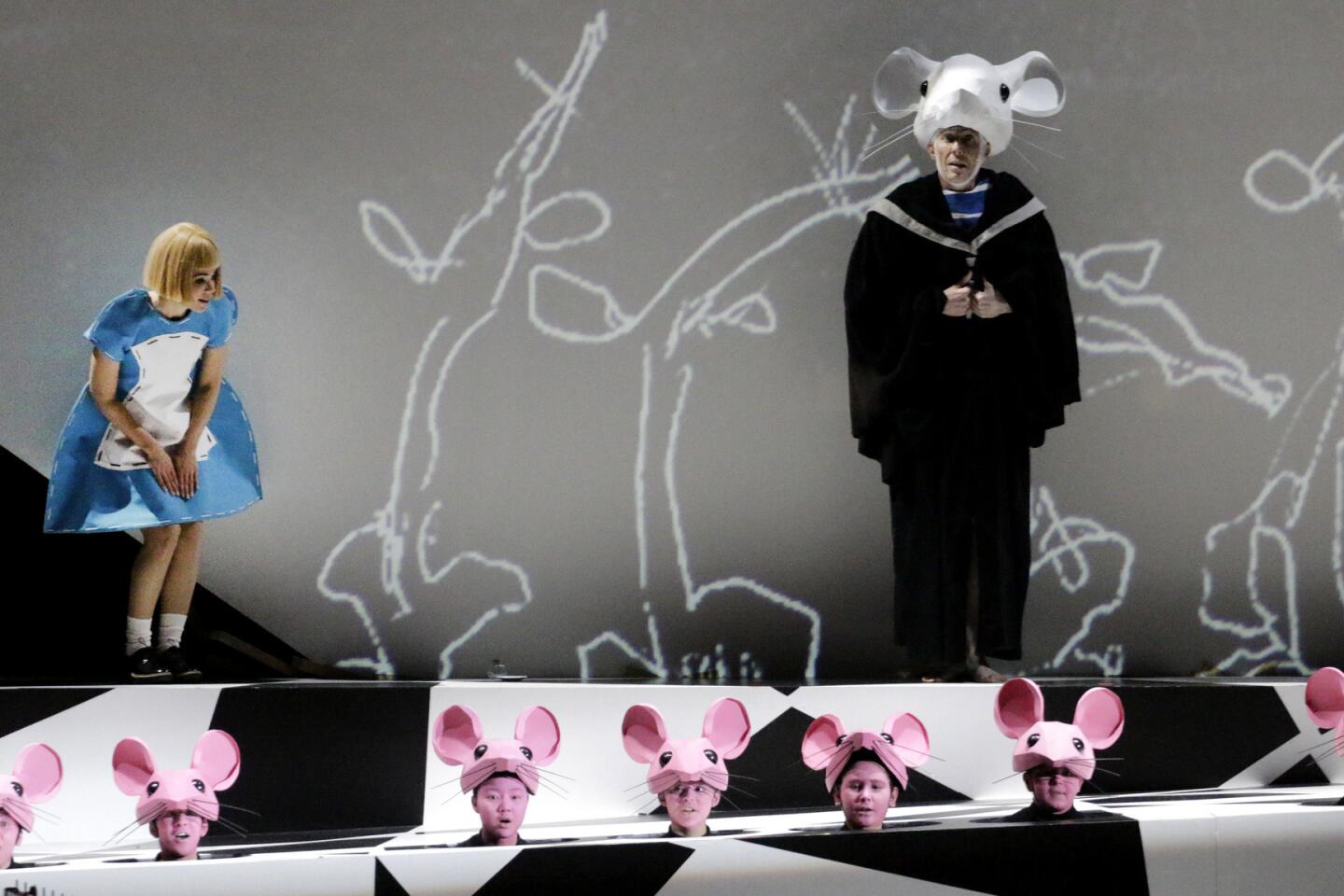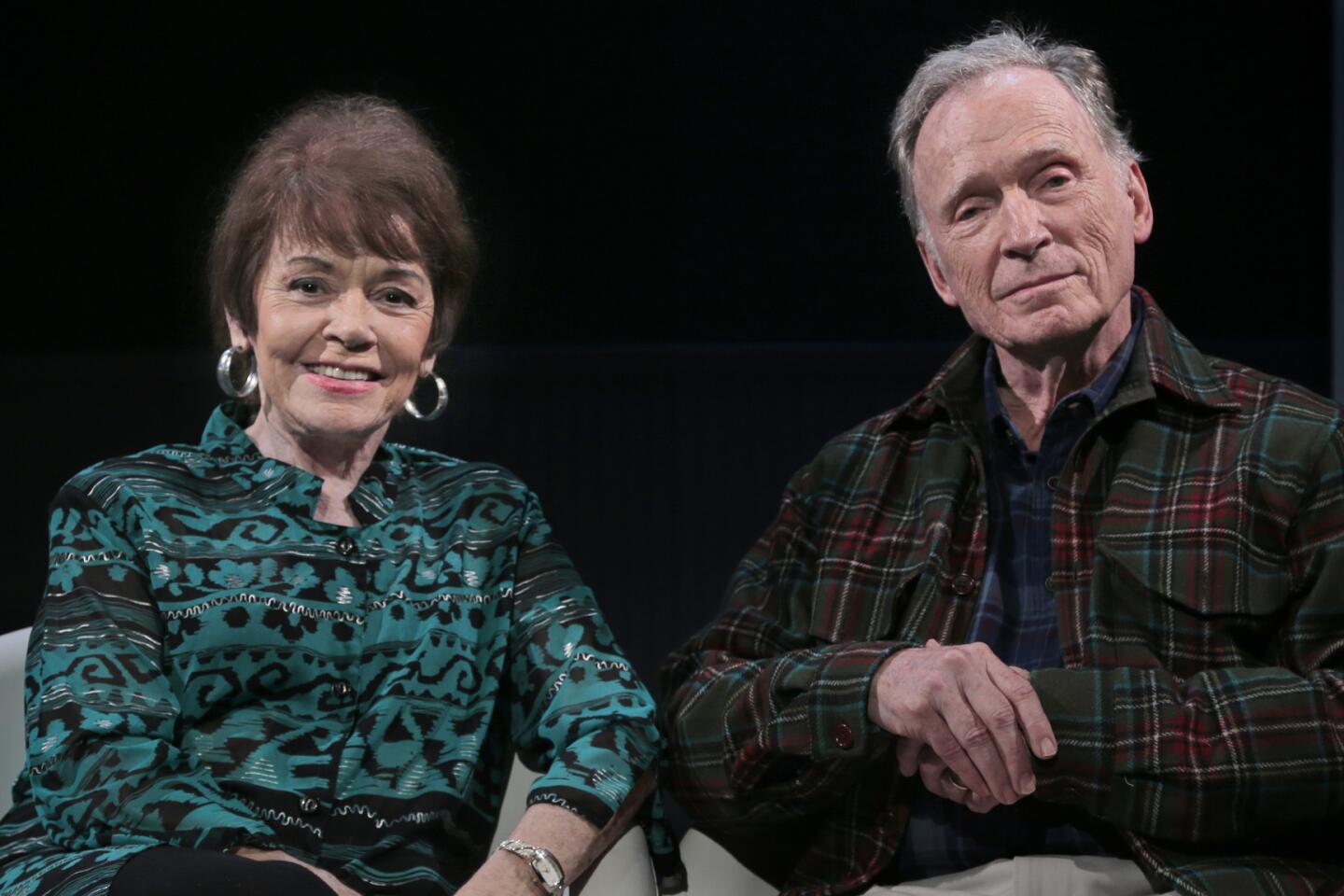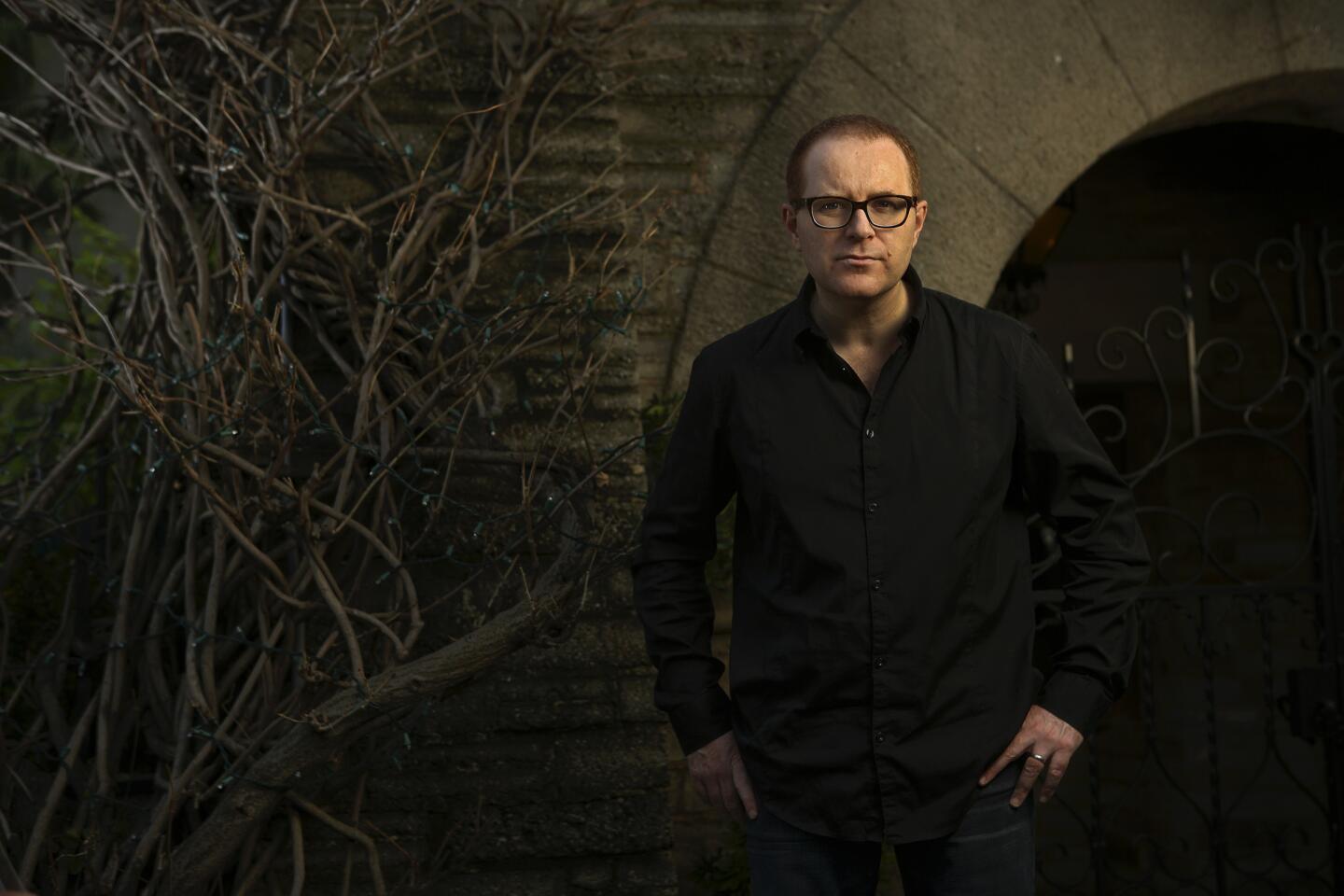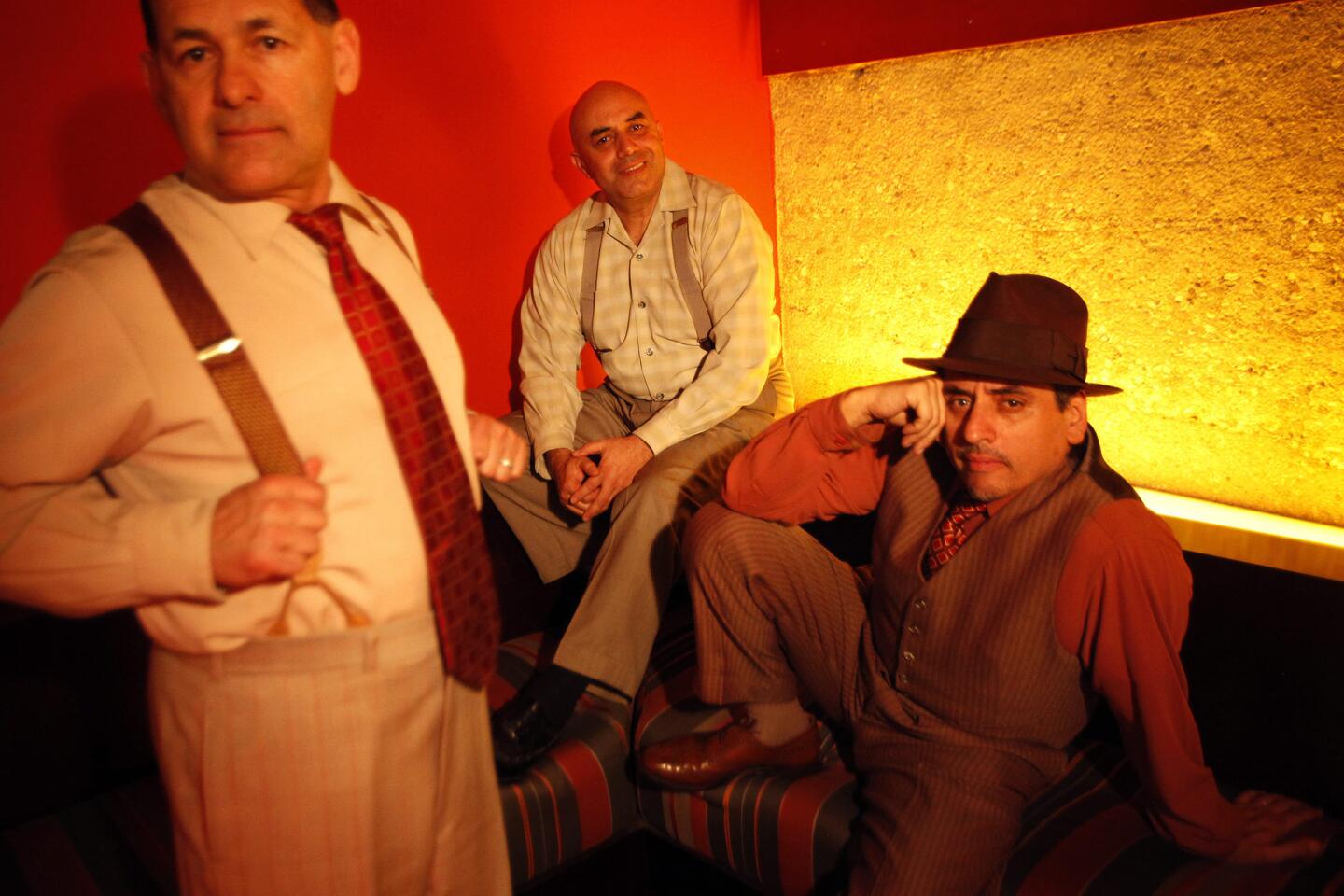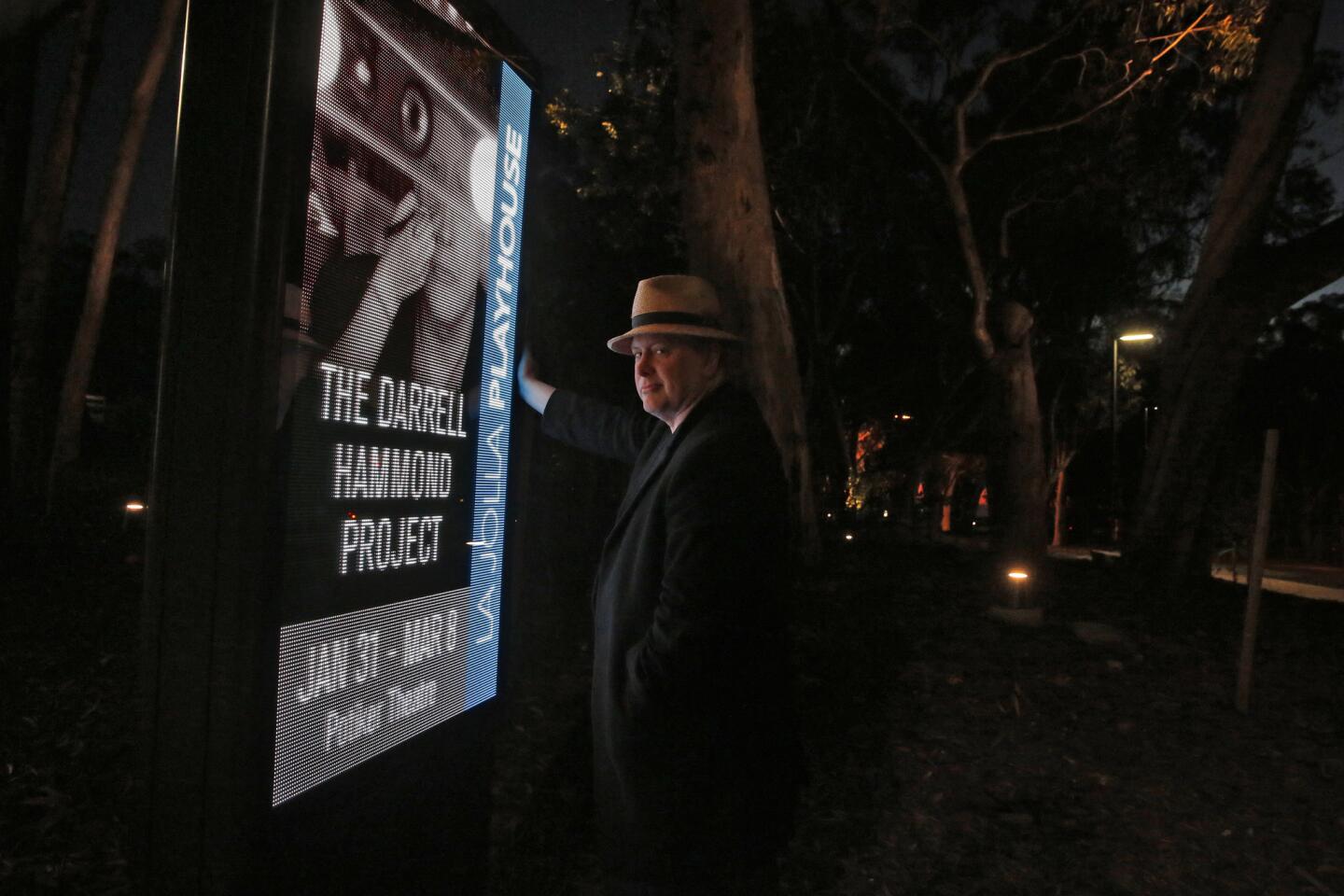Sandra Tsing Loh reluctantly reveals her flaws in ‘Madwoman in the Volvo’ play
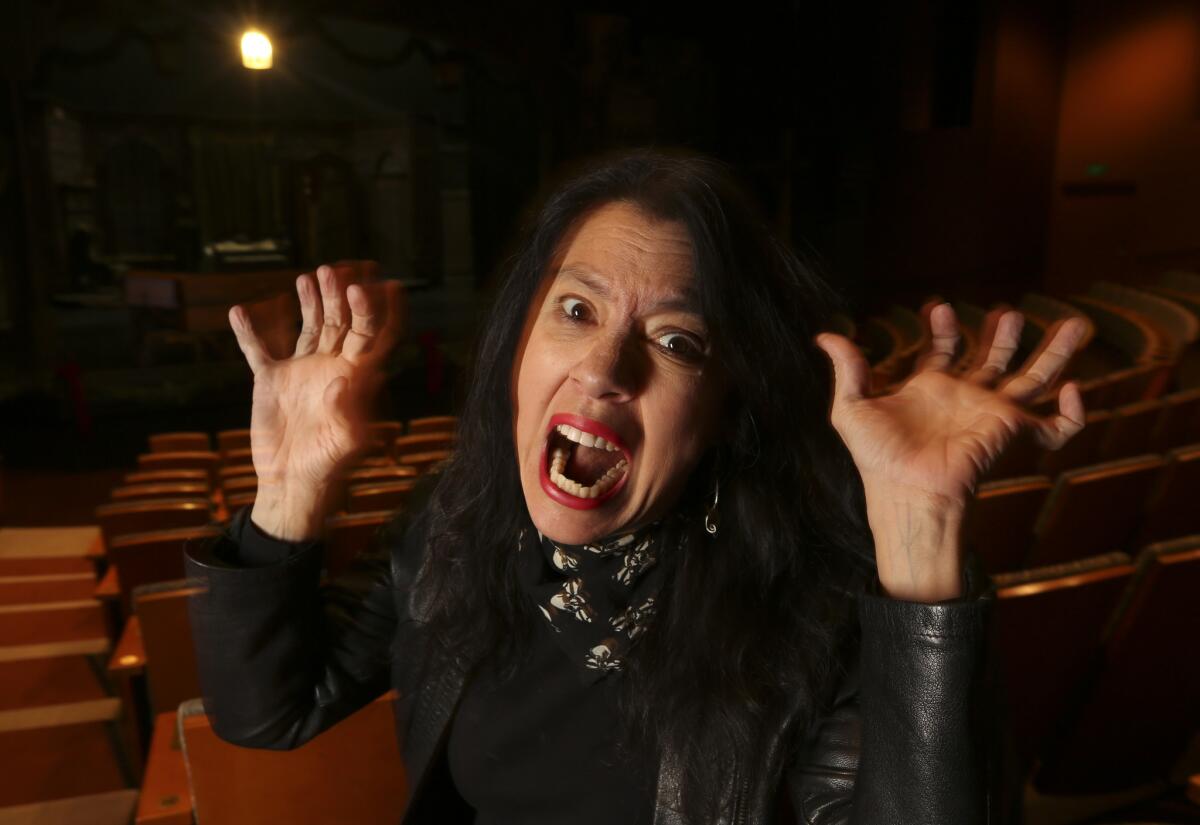
Sandra Tsing Loh
- Share via
One could conclude that Sandra Tsing Loh enjoys publicly owning up to her transgressions and that describing events most people save for therapy is easy for her. But in fact, as she explains before a rehearsal one morning at South Coast Repertory, adapting her memoir “The Madwoman in the Volvo: My Year of Raging Hormones” has been a challenge — and not just because of the three-hour daily commute from home in Pasadena to Costa Mesa.
“I feel more exposed than in any book I’ve ever written and in any show I’ve ever done,” she says. “Literally the saddest moments of my life are in this play.”
Loh is known for many things: one-woman shows such as “Aliens in America” and “Sugar Plum Fairy,” books including “A Year in Van Nuys” and “Mother on Fire,” the radio segments “The Loh Life” and “The Loh Down on Science,” and essays in publications like the Atlantic, where she is a contributing editor. Her career has been marked by disarming, usually self-deprecating frankness: She wins laughs by exposing feelings and failings the rest of us don’t like to admit.
This honesty has led to celebrity and controversy, as when, in the Atlantic in 2009, Loh announced that she’d had an affair that had ended her 20-year marriage. In 2014 she published “The Madwoman in the Volvo,” about her journey into menopause. The book combined pragmatic advice for fellow sufferers (In a nutshell: Water, kale and exercise just aren’t going to cut it, so do whatever it takes — smoke, eat cake pops, drink vodka — to get through it) with personal details about her infidelity and its repercussions.
She adapted the material into a one-woman show, “The B**** Is Back,” which ran last summer at the Broad Stage. Now comes a new play, “The Madwoman in the Volvo,” which is premiering this weekend at South Coast Rep. Directed by Lisa Peterson, the production stars Loh, Caroline Aaron and Shannon Holt.
It’s early in the morning, and Loh, wearing a black leather jacket (a splurge, she admits) over jeans and a Goodwill sweater, says she’s exhausted. Her voice is a little husky. She jumps from topic to topic so rapidly that she leaves sentences and even words unfinished. But the headlong rush of her thoughts is captivating and hilarious, bristling with an array of allusions and insights: No matter how tired she may be, this woman can work a room.
When she submitted the idea of adapting “Madwoman” to the Sundance Institute Theatre Program’s Theatre Lab at Mass MOCA (a residency program that supports the development of new work), Loh had a vague notion of the kind of show she wanted.
See more of Entertainment’s top stories on Facebook >>
She recalls thinking: “What I’d really like is to write a ‘Vagina Monologues’ or ‘Love, Loss, and What I Wore,’ or preferably ‘Menopause: The Musical.’ You’ll have three to five ladies, you can rotate casts. They’ll do bits like ‘Bloating,’ ‘Night Sweats,’ whatever. Everyone will laugh. I will be beloved. I will sit home. It will run forever. I will collect checks. I just want to be sort of funny, sort of warm, sort of likable, big button, big applause, and then we go home.”
When her project was accepted by Sundance in 2013, she was paired with director Peterson and the dramaturge Janice Paran, who pushed her to go deeper into the uncomfortable parts of her story. She was doing a bit for them about how she fell in love with her manager of 10 years during a road trip to Burning Man. It happened during a sandstorm, when she was dehydrated, and it was “like this Merchant Ivory movie experience” that took both parties by surprise.
“They go, ‘Well, how did you tell your husband about the affair?’” Loh recalls. “I had never told anyone that story, and it’s so painful. A whole part of the play — you’ll see — came out of my trying to explain to them how that went down.”
As a performer from an essentially comedic background, Loh says, she worries about presenting herself as unlikable.
“This is really warts and all,” she says. “You almost run the risk of going, ‘Oooh, I’m not going follow this person here.’ That’s the hard part of being transgressive. You just want to host a fun party and then high-five, but this is like, we go through a tunnel.”
She mentions a scene in which her character and her new boyfriend, named Charlie in the play, go to couples therapy. Charlie reminds her that modern relationships are about mutual support. “And I go, ‘Honestly, that feels very unsexy. I don’t want mutual support. I want you to take care of me like I’m Jackie O. and you’re Maurice Tempelsman. Hold the umbrella for me when I get done with it. I guess I want more of a valet parker or a spa.”
Philip Himberg, the producing artistic director of Sundance Theatre Lab, told her, “I really don’t like you in that scene.” She says she is still rewriting it.
Of course she can’t rewrite what happened, and she is aware that the story itself could upset people.
“If you look at American pop culture, the only well-loved book where a married mom commits infidelity is ‘The Bridges of Madison County’ — and it begins when she’s several decades dead, conveniently dead, and she did it for four days and then went back to her marriage. The guy wrote her these letters, and she just returned them. Why? Leave the farm! No one cares! The kids are up and out, your husband is into weighing heifers. Go to Spain, order off the tapas menu!”
“America,” she goes on, “doesn’t really want to hear about a married mom having an affair, blowing up her marriage...” She breaks off with a laugh. “Actually when I started telling it, I found there’s a surprising amount of people who do want to hear it.”
Some people do like it, Loh says, when the mask falls away and someone admits that the “perfect” marriage isn’t, that “we both have our different laptops open, and we don’t even talk anymore ... and I haven’t exercised in six months, and I don’t plan to. That’s why I’m wearing stretchy jeans.”
Even on Facebook, people rarely say, “I’m just really sad today. Here’s the remains of the bag of kettle chips I just ate.” Instead, she says, it’s always, “Look at my dog!”
She describes the goal of her work as “creating a space where people can just be human,” but even so, it isn’t easy for her to achieve the necessary honesty. She recalls submitting about six drafts of the “Madwoman” memoir to her editor at Norton because she was trying not to talk about the affair.
“I was struggling with wanting to be the mom next door, who you like and you’re on the same page with,” she says. “So I wrote the whole book without even mentioning the fact that I blew up my life and was kicked out of my house, which is kind of a major detail.” By the sixth draft, she had gotten those details in, but she knew she was opening herself up to opprobrium, especially because she and her ex-husband have two daughters.
“Nobody blows up their life at 46 because they fall madly in love. Although now that I’ve told the story,” she says, interrupting herself again, “you’d be surprised how many people actually do.”
Including other actors in her new play is a departure for someone known for one-woman shows. The idea emerged at Sundance, she says. Aaron and Holt play multiple roles.
“Sometimes they’re my daughters, sometimes they’re my mother and my sister, sometimes they’re my ex-husband and Charlie, and sometimes they’re drunk divorced people at a pool party,” Loh says. “There are different layers of reality and layers of intimacy, and sometimes maybe I’m a slightly unreliable narrator. The hope is that you’ll always be seeing a new rhythm, and you’ll never know what’s coming next.”
Loh’s friends and relatives have had to make their own peace with appearing in her work. When asked how they’ll react to seeing themselves in “Madwoman,” she runs down a list: “My sister has long been a character. My daughters haven’t seen this piece yet, and that will be the biggest thing, because they always see my work. Charlie, since he’s being played by Caroline Aaron, whom he adores, it’s kind of a treat for him. My brother doesn’t really even know he’s in it.”
She grimaces.
“There’s some unfinished business,” she says. “I wish you hadn’t asked that question! But nobody comes off badly except for me — and a couple of the divorced parents at the pool party.”
MORE:
FULL COVERAGE: Theater reviews
L.A. theater openings, Jan. 10-17: ‘1984’ and more
Sheldon Epps to step down as artistic director at Pasadena Playhouse
More to Read
The biggest entertainment stories
Get our big stories about Hollywood, film, television, music, arts, culture and more right in your inbox as soon as they publish.
You may occasionally receive promotional content from the Los Angeles Times.
